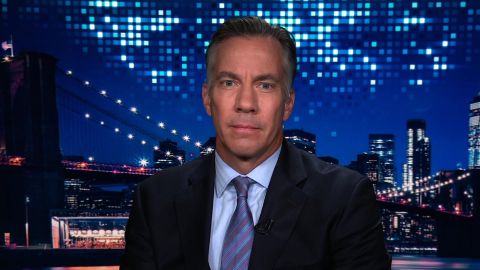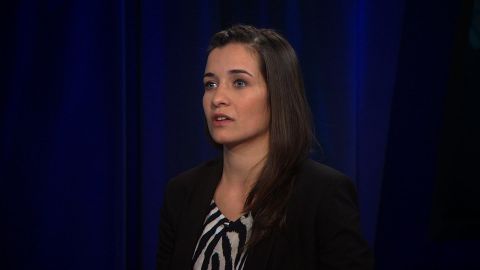Read Transcript EXPAND
CHRISTIANE AMANPOUR: From your perspective, and as a, you know, CIA kind of perspective, what does this say about the current state of national security?
STEVE HALL, FORMER HEAD OF CIA RUSSIA OPERATION: Well, Christiane, you know, from my approach at CIA when I used to work there, we used to watch, you know, the National Security Council and, of course, you know, the direction that the administration was going in, and your characterization of John Bolton as a hawk is, of course, accurate, and that is, indeed, I think what President Trump was looking for in Iran. The (INAUDIBLE) though, when you get somebody like Bolton who is a hawk across the board, you know, somebody who supports strong muscular overseas activities on the part of the United States using but the hard power of the military, soft power, as well. But when you get somebody like that who begins to take the same approach on Russia and on North Korea, which is at odds with the president, then you got a problem. Obviously, in the National Security Council, I think it works best when you have people who are disagreeing with each other. So, in a good, normal, healthy administration, you come to a conclusion the president makes the final decision. But there’s a fine line between that healthy discussion and chaos. And a guy like Bolton has a sort of a long history of being controversial, being abrasive and being very, very pushy with his own staff and with others. So, the question is, if John Bolton is on sort of the outer ring of normalcy in terms of just how you behave as a bureaucrat and how you play as a team member and he’s not acceptable to Trump, who is next? Where do we go from here? Is he going to name somebody like Devin Nunes or somebody to this national — to be the national security adviser? I don’t know where you go from Bolton. It will be interesting to see what the president decides on that.
AMANPOUR: You’re right. And certainly, everybody overseas is waiting and watching to see what comes next and who they — who speaks for U.S. foreign policy. You’re absolutely right. It’s going to be fascinating to watch who is next named and what this actually means on these key issues. Jim, let us now talk about this story you wrote, which is the extraction of this asset, for want of an intelligence sort of inside word, who for decades had been cultivated, apparently, by the CIA, as he, apparently, moved up the ranks of policy inside Russia. What did this person bring to the U.S. that was so valuable?
SCIUTTO: Enormous insight into the inner workings of the Kremlin but crucially, into the plans and thinking of the Russian president. My reporting is, as you noted, this is someone who had been providing information to the U.S. for more than a decade. During that time period, had risen to the top of Russia’s national security infrastructure. It has its own sort of National Security Council as well. And with that position, this person had access directly to the Russian president, including, I’m told, by a former Trump administration official, the remarkable ability to take photographs of presidential documents.
About This Episode EXPAND
Jim Sciutto & Steve Hall join Christiane Amanpour to talk John Bolton’s ousting; Waad Al-Kateab & Edward Watts discuss their documentary “For Sama;” & Sarah M. Broom talks about her home city of New Orleans and her new memoir, “The Yellow House,” with Walter Isaacson.
LEARN MORE


